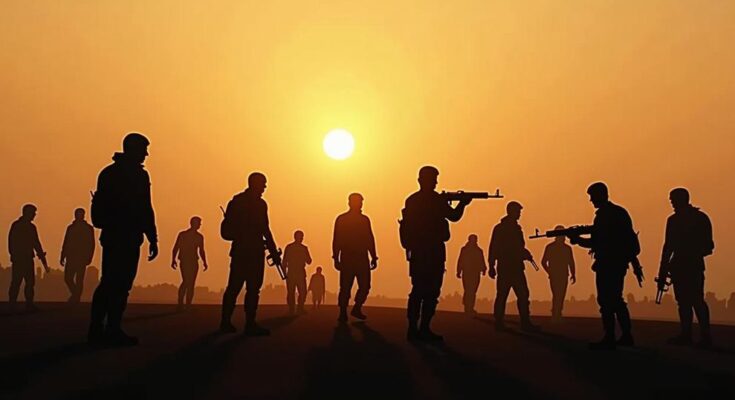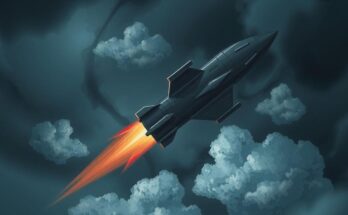Yemen’s Houthi rebels are expanding their military operations amid heightened tensions in the Middle East, notably against Israel. Following successful missile attacks and threats towards Israeli forces, their actions reflect a strategy of increased prominence and aspirations for regional influence. The Houthis leverage their connection to the Palestinian struggle to garner domestic support, potentially altering the dynamics of their ongoing civil war and international negotiations.
In recent developments, Yemen’s Houthi rebels have emerged as proactive participants in the ongoing conflicts across the Middle East, particularly as tensions escalate following Israel’s military actions against Hezbollah in Lebanon. Notably, on the occasion of Israeli Prime Minister Benjamin Netanyahu’s return from New York, the Houthis executed a ballistic missile attack targeting Israel’s main airport. This operation was accompanied by threats of further military escalations aimed at Israel, alongside claims of intercepting a U.S. drone over Yemeni territory. Additionally, they have intensified assaults on commercial shipping in the Red Sea, utilizing explosive drones to disrupt maritime traffic, thereby drawing international attention to their capability and strategic aspirations. The Houthis, backed by Iran, have controlled significant portions of northern Yemen, including the capital, Sanaa, for nearly a decade, following the overthrow of the internationally recognized government. Their involvement in the ongoing civil war against a Saudi-led coalition since 2015 has often relegated them to a lesser-known status among regional actors aligned with Iran. However, the resurgence of conflict in Gaza has catalyzed a shift in perception, as their actions begin to pose broader risks on maritime routes crucial for global trade. Analysts suggest that the Houthis’ increasing visibility amidst regional upheavals is a calculated strategy aimed at enhancing their military position. Their recent missile and drone operations suggest an evolution toward more sophisticated tactics aimed at constraining Israel and its allies. The rebels have capitalized on the Palestinian plight to galvanize support domestically, merging the narratives of their struggle with broader regional grievances, as they seek to rally additional fighters to their cause. In light of the geopolitical climate, the Houthis appear poised to expand their military endeavors, deliberately escalating their operations to target far-reaching vessels and even potentially forging alliances with other militias. The consequences of these developments could significantly alter the landscape of conflict, as the Houthis leverage their newfound prominence in regional disputes to potentially engender changes in negotiation dynamics, particularly concerning their ongoing civil war with Saudi Arabia.
The ongoing conflict in Yemen and its implications within the broader Middle Eastern geopolitical landscape are crucial to understanding the Houthi rebels’ strategic maneuvers. Since their emergence, the Houthis have positioned themselves as significant actors supported by Iran, controlling much of northern Yemen after the ousting of the Yemeni government. Their military capabilities, augmented by external support, reflect a complex interplay of local grievances and regional power struggles, especially considering their role within the Iranian-led coalition that includes Hezbollah and Palestinian factions such as Hamas. The escalation of the Israel-Hamas conflict has provided an impetus for the Houthis to assert their influence and simultaneously foster solidarity with the Palestinian cause.
In summary, Yemen’s Houthi rebels are strategically utilizing the current conflicts in the Middle East to bolster their position regionally and expand their military capabilities. By aligning their narrative with the Palestinian struggle and executing impactful military operations, they are reasserting their relevance within the landscape of Middle Eastern conflicts. Moving forward, their actions could have far-reaching implications, not only for Yemen’s civil war but also for regional stability as they pursue greater autonomy and influence.
Original Source: apnews.com




